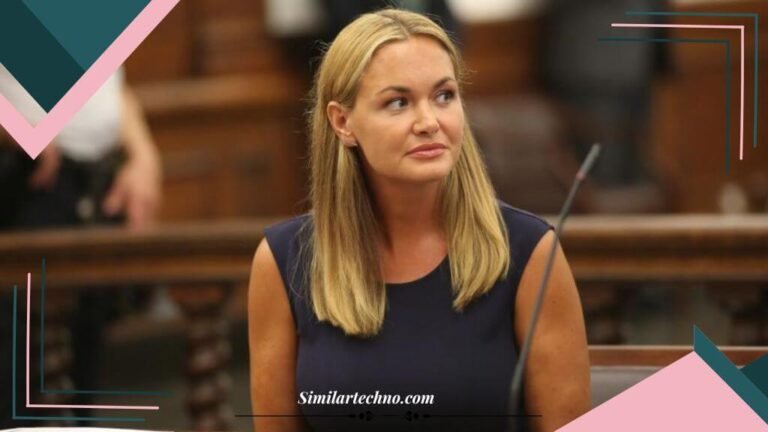Ticketmaster Refund has been a lifesaver for me more times than I can count. As someone who loves attending concerts and live events, unexpected changes like cancellations or reschedules have occasionally thrown a wrench in my plans. Thankfully, Ticketmaster’s refund process is straightforward—if you know how to navigate it. From figuring out eligibility to requesting a refund, I’ve learned the ins and outs through personal experience. Whether it’s a cancelled concert or a date that no longer works for you, understanding how to secure a refund can save you a lot of stress and money. Let me share what I’ve learned to make the process easier for you!

When Can You Request a Ticketmaster Refund?
You can request a Ticketmaster Refund in certain specific situations, ensuring your money doesn’t go to waste. Refunds are allowed if the event you purchased tickets for gets cancelled outright. In this case, Ticketmaster typically refunds you automatically, saving you the hassle of making a formal request. If the event is postponed or rescheduled, you might qualify for a refund if the new date or time doesn’t fit your schedule. Some refunds are possible if the event’s location changes significantly, making it harder for you to attend. Keep in mind, though, that refunds aren’t usually available for tickets marked as non-refundable or final sale. Always check the event details and refund policies carefully before purchasing your tickets to ensure you’re covered in case of unexpected changes.
How to Check if You’re Eligible for a Ticketmaster Refund
To determine your eligibility for a Ticketmaster Refund, log into your account using your registered email and password. Navigate to the “My Tickets” or “My Events” section, where you’ll see a list of your purchased tickets. Click on the specific event you’re inquiring about and check for refund options or notifications. See details indicating whether the event has been cancelled, postponed, or rescheduled. If a refund is available, you’ll see instructions on proceeding. Review the event’s terms and conditions; some tickets are non-refundable. Refunds are usually automatic for cancelled events, but you might need to submit a formal request for others. Always keep your confirmation email handy as it contains essential details about your ticket purchase.
Read More: Walmart Logo: A Bold Symbol of Retail Success 2025
Steps to Apply for a Ticketmaster Refund
Applying for a Ticketmaster Refund is simple if you follow the steps carefully. Start by logging into your Ticketmaster account using your credentials. Go to the “My Tickets” or “Order History” section and find the event you wish to request a refund. Once you select the event, check if a “Refund” button or similar option is available. Click on it, and the system will guide you through the refund request form. Fill out all required fields accurately, such as the reason for your request and any additional information Ticketmaster asks for. Submit the form and wait for a confirmation email. Keep this email as proof of your request. Check the refund deadlines, as missing these can make you ineligible. Following these steps ensures a smooth refund process.
Cancelled Events
When an event is cancelled, the Ticketmaster Refund policy ensures customers get their money back without unnecessary stress. Refunds are usually automatically processed using the original payment method, including the ticket price and service fees. There’s no need to submit a formal refund request, but checking your email for updates and confirmation from Ticketmaster is wise. If you purchased your ticket from a third-party reseller or a partner site, the refund process might vary, so review their specific instructions. Watch your Ticketmaster account under “My Tickets” to track the refund status for cancelled events. Refunds are typically processed within a few business days, which can vary depending on your payment method. Permanently save your purchase receipt and any emails related to the event as proof, just in case you need to follow up.
What Happens with Postponed or Rescheduled Events?
When an event is postponed or rescheduled, Ticketmaster handles it differently than a cancellation. For rescheduled events, your original tickets will typically remain valid for the new date, and you won’t need to take any action. The Ticketmaster will update the event details on your account and email you the latest information. You may be eligible for a Ticketmaster Refund if the new date doesn’t work. To request a refund, follow the instructions provided by Ticketmaster, which may involve submitting a request through your account. Keeping track of the refund window is essential, as this may vary depending on the event. If you can’t attend the rescheduled date, act quickly to ensure you get your refund in time. Always check your emails and account for updates about any changes to your tickets.
How Long Does a Ticketmaster Refund Take?
The time it takes to receive a Ticketmaster Refund depends on how you paid for your ticket. If you paid with a credit or debit card, the refund is usually processed within 7 to 10 business days. However, some payments may take up to two weeks, depending on your bank. If you paid using PayPal, the refund is often quicker, but you may still need to wait a few days for the funds to show in your account. For bank transfers or other methods, it may take even longer. If you don’t see the refund after the expected time frame, check your email for any updates or contact Ticketmaster customer support. They can provide details on the status of your refund. Always keep track of the event status and any refund deadlines to avoid delays.
Read More: Hulk Hogan Beer: The Ultimate Drink for Wrestling Fans 2025
Common Problems
When it comes to Ticketmaster Refunds, there are a few common issues that people often face. One of the most frequent problems is missing the refund deadline. If you don’t request your refund within the specified window, you may lose your chance to get your money back. Another issue is not receiving the rebate within the expected time frame. This can happen if there’s a delay with your payment method or if the system takes longer than usual. If your refund isn’t processed, double-check that you followed the correct steps and review any email notifications. Refunds are sometimes delayed due to payment issues or incorrect information on the form. If you encounter these problems, contacting Ticketmaster support is the best way to resolve them. They can track your request and ensure your refund is processed promptly.
Tips to Avoid Ticketmaster Refund Issues
To avoid issues with Ticketmaster Refunds, read the refund policy carefully before purchasing tickets. This will help you understand the conditions under which refunds are offered. Always keep a copy of your purchase confirmation email as proof of your transaction. If you’re buying tickets for an event with uncertain dates or venues, consider purchasing tickets with flexible refund options when available. Please pay attention to deadlines for requesting a refund, as missing them can prevent you from receiving your money back. If your event is cancelled or rescheduled, immediately submit your refund request. Also, keep track of your payment method, as refunds may take longer for specific methods. By staying informed and organized, you can avoid many common problems people face when requesting a Ticketmaster Refund.
FAQs
What is a Ticketmaster Repayment?
A Ticketmaster Refund is getting your money back for tickets, usually when an event is cancelled or rescheduled.
How do I request a Ticketmaster Repayment?
You can request a Ticketmaster Refund by logging into your account and following the instructions for eligible events.
How long does a Ticketmaster Refund take?
A Ticketmaster Refund typically takes 7-10 business days, depending on your payment method.
Can I get a Ticketmaster Refund if I missed the event?
No, Ticketmaster Refunds are usually only available for cancelled or rescheduled events, not for missed ones.
Do I get a full refund from Ticketmaster?
If your event is cancelled, you’ll typically get a full Ticketmaster Refund, including ticket price and service fees.
Conclusion
In conclusion, understanding the Ticketmaster Refund process can save you time and hassle when an event is cancelled or rescheduled. By following the proper steps, such as checking your eligibility and acting quickly, you can ensure your money is refunded without complications. Remember to keep track of deadlines and review the event’s terms before purchasing. Ticketmaster’s customer service is there to help if you face any issues. Knowing how to handle a Ticketmaster Refund will make the process much smoother, whether it’s a simple cancellation or a more complex reschedule.





